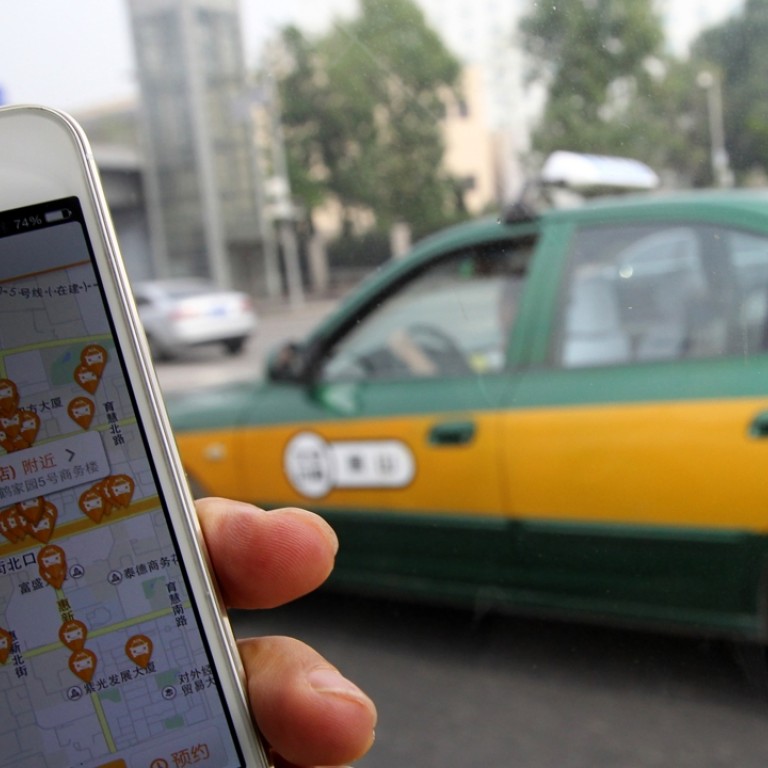
Car-hailing app Didi Kuaidi releases gov’t-backed index showing usage, user experience, traffic conditions in Chinese cities
China’s top ride-hailing app Didi Kuaidi has teamed up with state-run news wire agency Xinhua to create a series of indices showing how it is being used in cities across China, while also ranking the cities in terms of user experience and mapping out certain traffic conditions.
According to the Xinhua-Didi Mobile Transportation Indices, Guangzhou and Shenzhen in southern Guangdong province rank as the two leading megacities - urban spreads with populations in excess of 10 million - for both user experience and traffic conditions.
People in Shanghai spend more on the car - and taxi -hailing app than residents of any other Chinese city, it showed, with an average daily spend of 30 yuan (US$4.70) per user.
READ MORE: China’s top car-hailing app Didi Kuaidi rebrands itself with new logo, name in bid to shake off ‘illegal taxi service’ stigma amid crackdown
Local apps like Didi, UCar and San Francisco-based Uber have exploded in popularity in China in recent years as city slickers look for easier ways to commute and grab a cab in congested metropolises.
Uber said earlier this year that at least half of its 10 top cities globally in terms of the average number of daily rides are now in China.
The new indices also highlight a number of issues related to urban traffic management.
It showed that from 6pm to 10pm in the nation’s 10 most congested cities, including Beijing, Shanghai, and Hangzhou in Zhejiang province, its cars travel at an average speed of below 10 kilometres per hour.
Didi Kuaidi based the indices on big data compiled from its users. It now provides more than 10 million rides a day in over 360 Chinese cities and has 250 million registered users, it said.
However, there is still some uncertainty about how the company, which is backed by Chinese internet giants Tencent and Alibaba, should be regulated on the Chinese mainland. The same applies to rivals like Uber.
That same month, Uber set up a local company in the city’s year-old free trade zone, which is being used to experiment with economic and other reforms that may later be rolled out nationwide.
At around the same time, the Chinese government issued a stringent set of regulations for car-hailing apps.
READ MORE: Top car-hailing app Didi Kuaidi teams up with LinkedIn to improve user experience, give both brands a boost in China
The draft rules would require such services to share data with local transport authorities, register their cars as taxi services, insure the cars and passengers, and have labour contracts with drivers.
Under the rules, car-pooling and ride-sharing services offered by private drivers who lack the correct taxi licence would be banned.
Many drivers who work for Didi and Uber said they expect their income levels to drop dramatically if the regulations take effect.
Such apps have long operated in a legal grey zone in China, where many municipalities have ruled private taxis technically illegal. But in most cases the bans have not been rigorously or consistently enforced.
China has cracked down on such apps this year, with police raiding Uber’s offices in Sichuan’s Chengdu and Guangzhou in May, and later in Hong Kong.

